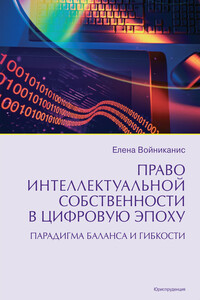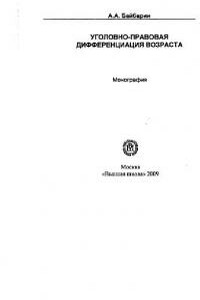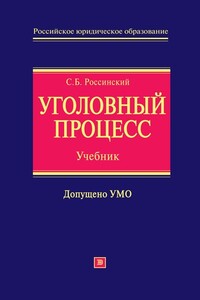Информация. Собственность. Интернет. Традиция и новеллы в современном праве | страница 3
В настоящем исследовании авторы попытались осмыслить процесс трансформации системы правового регулирования на примере соотношения правовых институтов "информации" и "собственности". Актуальность этой темы не вызывает сомнений, особенно если учесть то огромное внимание, которое во всем мире уделяется регулированию относительно новых, информационных правоотношений, а также недостаточную теоретическую и практическую проработанность в современном российском праве проблем, которые возникают в связи с вовлеченностью в контекст информационных отношений традиционного института собственности. В процессе работы над книгой стало очевидным, что для рассмотрения указанных вопросов требуется постоянно обращаться еще к одной малоизученной области правовых исследований — к специфике правовых отношений, связанных с использованием Интернета. Именно поэтому предлагаемая читателям работа получила название, вынесенное на первую страницу обложки.
Summary
The book sums up the many years experience of the authors in the theory of Information Law.
The new information technologies raised questions about the nature of property, intellectual property, and information as an object of legal regulation.
The goal of the book is to analyze the interrelation between the existing concepts of information and property.
The codified conception of property as a bundle of sticks (possession, use and disposal) is still dominant in the Russian academic society.
However, this traditional view of property fails to describe many relationships involving information, first and foremost because it cannot express the full range of property rights.
The possible get-out, as suggested, requires the replacement of traditional concept with an alternative, which extends the old, fixed and inflexible limits of the notion 'property'.
Without taking into consideration the foreign legal practice and historical analysis, no one may give clear answers to the question, how information can be treated as somebody's property.
To come to the legal understanding of information it should be studied as a phenomenon of modern culture, inherent part of everyday life and topical matter of scientific and philosophical disputes.
The development of the Internet added a lot of material for interpretation and analysis.
Thus, the question on the information as a legal institute deals primarily with the legal regulation of subjects, which appeared and formed along with the Internet era.




